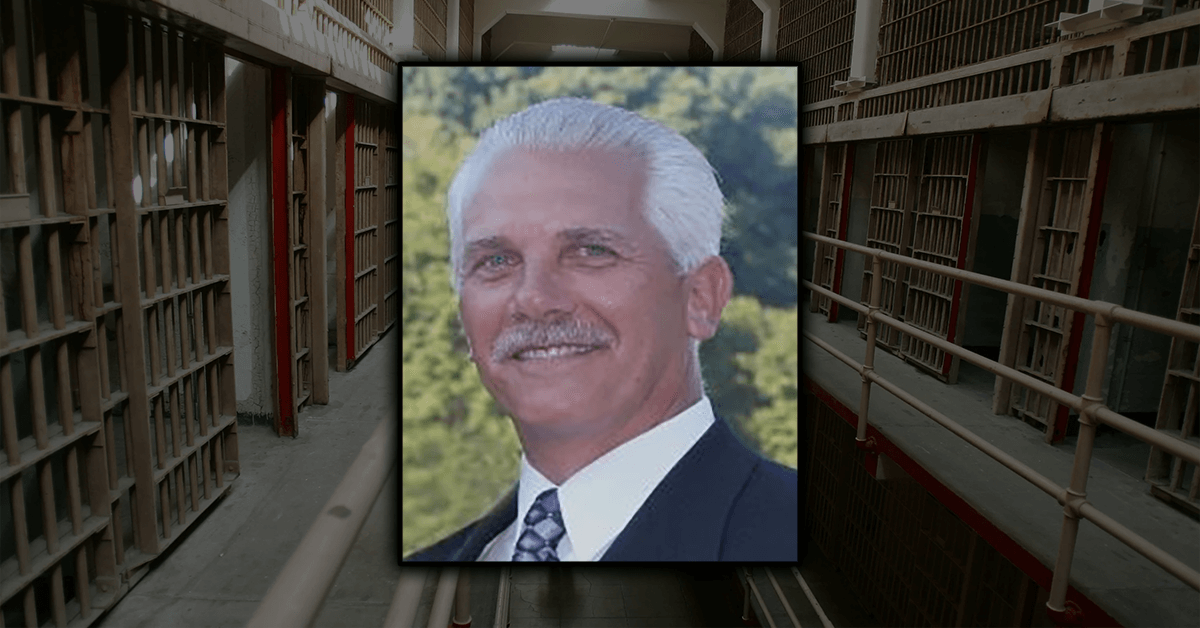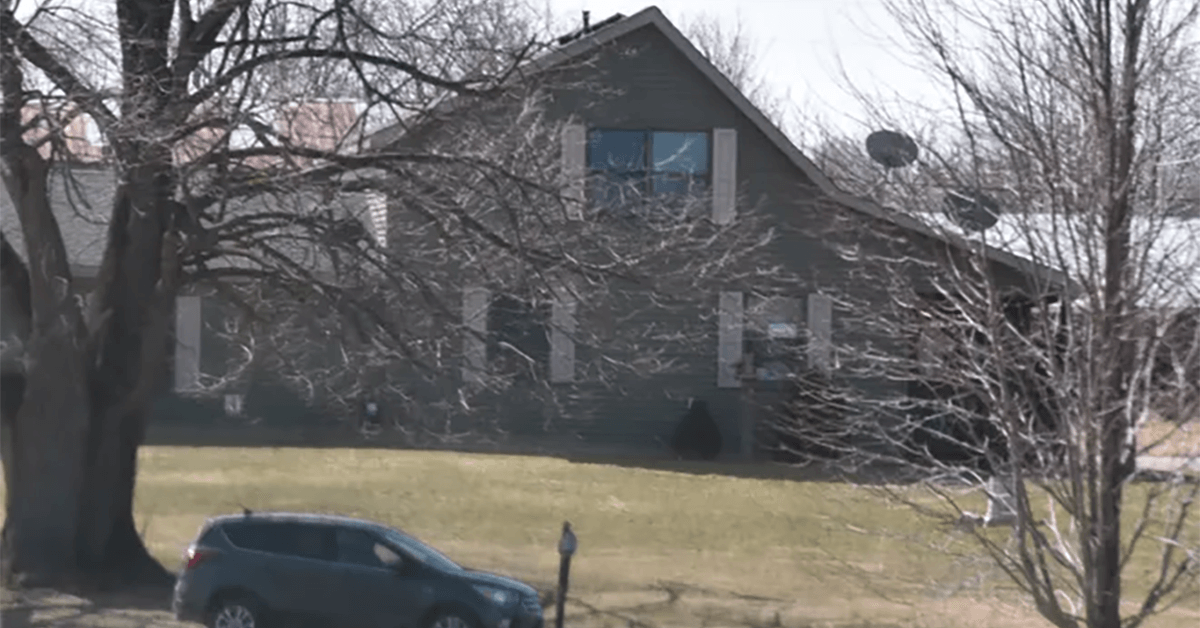Michigan Court Closes Loophole Allowing Unlicensed Cannabis Growers to Avoid Felonies

The Michigan Court of Appeals has significantly altered the legal landscape for prosecuting unlicensed cannabis operations in the state. In a decision issued Tuesday, the court closed a loophole that had previously hindered the ability to pursue felony charges against those possessing or distributing large amounts of cannabis without a state-issued license.
The ruling centers around the case People of the State of Michigan v. Julia Soto, where Soto was charged with felony possession of approximately 20 pounds of cannabis and $10,000 in cash, indicating intent to distribute. Soto's defense argued that the 2018 Michigan Regulation and Taxation of Marihuana Act (MRTMA) should prevent her from facing felony charges. They cited the statute's aim to reduce severe penalties for cannabis-related offenses.
Over the past year, ambiguity in the MRTMA's language has created a grey area in enforcement, leading to a 2023 ruling that hindered prosecutorial actions against unlicensed cannabis dealers. This confusion resulted from a previous appeals court decision involving Shaaln Kejbou, who was cultivating over 1,100 plants without a commercial license. Despite the scale of his operation and security measures that included a shotgun and dogs, the court ruled that he could only face misdemeanor charges.
The 2023 ruling marked a significant setback for law enforcement, allowing illegal operators to bypass felony charges under the MRTMA. The decision led to a marked increase in unlicensed cultivation and distribution, often at the expense of the state's regulated cannabis market. As a result, law enforcement agencies faced significant challenges in curtailing large-scale, unlicensed operations.
One notable example occurred in Calhoun County, where a warehouse in Albion run by a group of Chinese nationals was raided. Police discovered thousands of pounds of cannabis being processed in unsanitary conditions, including mold contamination and dog feces. However, due to the precedent set by the Kejbou case, no criminal charges were pursued.
The Michigan State Police and industry stakeholders have raised concerns over the potential impact of these rulings on both consumer safety and the broader cannabis industry. First Lieutenant Tom Kish, commander of the Michigan State Police Marijuana & Tobacco Investigation Section, emphasized that the presence of unlicensed operations poses a serious threat to consumer health and public safety. "The dirty product that is infiltrating the licensed market is being sold to unwitting consumers," Kish warned, citing risks of organized crime and violent incidents linked to high-stakes, unregulated cannabis activities.
In response, the court's new ruling clarifies the intent of the MRTMA. It states that while the act legalizes limited personal possession, it does not extend protections to large-scale operations that undermine the legal market. The decision affirms that unlicensed dealers distributing significant quantities of cannabis are subject to the felony provisions outlined in the state's Public Health Code.
"Possession with intent to deliver large quantities of marijuana for compensation and outside of state regulation implies an illicit dealing for profit or contribution to the illicit market," the court wrote. "Such conduct subverts the express purpose of the Act."
Legal experts believe that the ruling will have wide-reaching implications. Doug Mains, a partner at Detroit law firm Honigman LLP and co-author of the MRTMA rules, described the decision as a necessary correction. "I expect criminal defendants will continue to explore the exact relationship between MRTMA's penalty provisions and the Public Health Code," Mains stated. "But the Soto case demonstrates that MRTMA did not create a free-for-all when it comes to illicit cannabis activity. The Court of Appeals was correct that this type of large-scale trafficking subverts the purposes of MRTMA."
The ruling may help stabilize Michigan's cannabis industry, which has struggled with a dramatic decline in wholesale prices due to an oversupply of product. The price of an ounce of cannabis flower in Michigan has plummeted by 85% since the state's legal market launched in December 2019, reaching an average of just $80.14 in August. By re-establishing harsher penalties for unlicensed operations, regulators hope to reduce the illicit supply, potentially driving up prices and providing some relief to the state's struggling licensed businesses.
As for the legal ramifications, the ruling suggests a shift back to stricter enforcement, reflecting concerns over market integrity and consumer safety. This recent decision, while significant, could prompt further review by the Michigan Supreme Court to definitively settle the conflicting interpretations of cannabis laws from the Kejbou and Soto cases.
Matthew Abel, founding partner of Cannabis Counsel and former executive director of the Michigan chapter of the National Organization for the Reform of Marijuana Laws (NORML), agrees that the new ruling aligns more closely with the law's intent. "Because MRTMA addresses only ‘up to twice the amount allowed,' the older law addresses anything in excess of that," Abel stated. "I always thought this would be interpreted that way. I don't see the Michigan Supreme Court ruling any differently."
Kent County Deputies Recover Cannabis, Firearm After Brief Pursuit

A routine traffic stop escalated into a brief chase and resulted in two people being detained, according to the Kent County Sheriff’s Department.
The incident began around 4 p.m. on Saturday, October 5th, when a deputy conducted a traffic stop near South Division Avenue and Green Meadow Street in Gaines Township. Deputies on the scene reported that they observed “abnormal movements” from the driver, prompting additional officers to respond and assist.
As a precaution, deputies deployed spike strips under the vehicle’s rear passenger tire. However, the driver, a 23-year-old man, attempted to flee, sparking a short pursuit. The chase ended when the suspect abandoned the vehicle and fled on foot. A 20-year-old female passenger remained in the car and was apprehended without incident.
During the subsequent search of the vehicle, authorities discovered a substantial amount of cannabis, though they did not specify the exact quantity. In addition, deputies recovered a digital scale, packaging materials, a large sum of cash, and a loaded Glock 10mm handgun.
Both suspects were taken into custody, and no injuries were reported in connection with the incident.
The sheriff’s office commended the quick response by the deputy and the deployment of the spike strips, which they believe helped prevent a more dangerous situation. “We commend the deputy for thinking ahead and taking action to prevent the suspect from fleeing further and potentially endangering others,” the department stated in a release.
Michigan Supreme Court Considers Whether Cannabis Odor Justifies Vehicle Searches

The Michigan Supreme Court is considering whether the smell of cannabis can still provide grounds for vehicle searches, now that the substance is legal for adult use in the state. During oral arguments on Tuesday, justices grappled with the implications of legal cannabis possession and its interaction with law enforcement protocols. The debate centers on whether the smell alone constitutes sufficient evidence of illegal activity, such as impaired driving or unlawful public consumption.
This issue arose from the case of Jeffery Scott Armstrong, who faced weapons charges after police officers searched his car solely based on detecting the smell of cannabis. The lower courts, including an appellate panel, had dismissed the charges, finding that the odor of cannabis, without more, did not establish probable cause for a search.
Case Background: Weapons Charges and Cannabis Odor
The incident occurred when police officers approached Armstrong's vehicle, which was parked in a public area, and claimed to have detected the scent of cannabis. After removing Armstrong and his companion from the car, officers discovered a firearm. Armstrong, who was not licensed to carry the weapon, was charged with multiple weapons offenses. He argued that since recreational cannabis use became legal in Michigan in 2018, its smell should no longer serve as the sole basis for a search or detention.
However, cannabis use in public places and its consumption while operating a vehicle remain illegal, prompting debate over whether officers are justified in investigating cannabis odors emanating from vehicles under these circumstances. Justice Brian K. Zahra raised this point, comparing it to the U.S. Supreme Court's Terry v. Ohio decision, which permits officers to conduct limited searches if they have a "reasonable suspicion" of criminal activity—an evidentiary standard lower than probable cause.
Debate Over Reasonable Suspicion vs. Probable Cause
Justice Zahra argued that a strong cannabis odor could indicate current illegal use, warranting further investigation. He even suggested that it is possible to differentiate between recent and older cannabis smells, stating: "I can tell the difference between an old odor of marijuana and a very fresh odor of marijuana. I don't think it takes an expert to figure that out."
Andrew C. Sullivan of the Neighborhood Defender Service of Detroit, representing Armstrong, countered that the presence of a cannabis odor is not reliable evidence that the drug was being used illegally at that specific moment. Sullivan emphasized that cannabis scents can linger on clothing and upholstery for extended periods, making it challenging to pinpoint the time of use or even whether the vehicle occupants were the ones consuming it.
Judicial Concerns and Legal Nuances
Other justices raised questions about the broader implications of using cannabis odor as a basis for searches. Justice Elizabeth T. Clement asked Sullivan what additional factors might constitute reasonable suspicion if smell alone is insufficient. Sullivan suggested that visible evidence, such as a lit joint or clear signs of driver impairment, would be necessary indicators of ongoing illegal activity.
Justice Megan K. Cavanagh expressed concern over whether legal cannabis use in private settings should be treated differently than other activities, such as possessing alcohol, where legality hinges on context. "How can completely legal conduct give you reasonable suspicion of illegal conduct?" she asked, highlighting the complexities of distinguishing between lawful and unlawful cannabis use based solely on scent.
Law Enforcement's Position: Balancing Legal and Illegal Use
Jon Wojtala, representing the Wayne County Prosecutor's Office, argued that officers should be allowed to investigate a situation if there is a reasonable suspicion of criminal behavior, even if an innocent explanation is possible. Wojtala suggested that a strong cannabis odor directed toward a specific vehicle or individual might justify further investigation. However, Justice Clement questioned the practicality of officers discerning whether a smell originated from recent use or was merely residual.
ACLU's Perspective: Higher Standards Needed for Civil Infractions
The American Civil Liberties Union (ACLU) of Michigan, participating as a friend-of-the-court in support of Armstrong, argued that reasonable suspicion should not justify searches when the suspected violation is only a civil infraction. The ACLU's Ramis J. Wadood emphasized that under Michigan law, public cannabis use is a civil infraction, while driving under the influence is a criminal offense. He argued that the higher standard of probable cause should apply when officers suspect a civil infraction rather than a crime.
Justice David F. Viviano raised concerns that the ACLU's position would prevent officers from acting on circumstantial evidence, even when it suggests a crime might be occurring. He pointed out that if police need to catch someone in the act of consuming cannabis to justify a search, it could significantly hinder enforcement.
Legal Developments in Other States
The Michigan justices are examining the issue in light of evolving legal interpretations in other states. Just days before the Michigan Supreme Court hearing, the Illinois Supreme Court ruled that the smell of burnt cannabis alone is not sufficient to justify a warrantless vehicle search. Since the legalization of recreational cannabis in Illinois in 2020, courts there have sought to clarify the limits of police authority in similar contexts.
Next Steps for Michigan's High Court
Armstrong's weapons charges were initially dismissed after the Wayne County Circuit Court judge suppressed the evidence on Fourth Amendment grounds. The Michigan Court of Appeals upheld the decision in 2022, leading the Wayne County Prosecutor's Office to seek review by the state's highest court. The Michigan Supreme Court's decision could have significant implications for how cannabis-related searches are conducted statewide.
The case was heard during a special session at Northern Michigan University in Marquette, part of the court's Community Connections program aimed at increasing public engagement with the judicial process.
Political Fallout as Monroe County Leader Sentenced for Drug-Related Charges

Monroe County Commissioner Mark Brant has been sentenced to 18 months in federal prison after pleading guilty to a charge of maintaining a drug-involved premises. The sentencing took place on September 11th, 2024, in the U.S. District Court for the Northern District of Ohio. Brant, who has served on the Monroe County Board of Commissioners since 2012 and currently chairs the board, was also ordered to pay a $500,000 fine and forfeit over $300,000 seized from his residence.
The case stems from a federal indictment issued on December 15th, 2022, accusing Brant of allowing his Michigan rental properties to be used for growing and distributing cannabis, specifically marijuana and tetrahydrocannabinol (THC). His properties, rented out between 2018 and 2020, were part of a scheme that involved the distribution of marijuana across state lines into Ohio, which was a violation of federal law at the time. Although Brant did not directly cultivate or distribute the cannabis, he was charged for knowingly permitting the activity to occur on his premises.
Legal Battle and Sentencing
Brant's legal troubles began in early 2023 when he was formally charged with conspiracy to distribute and possess a controlled substance. According to court filings, Brant cooperated with authorities and did not dispute the accusations. His defense team, led by attorney Vincent Haisha, argued that Brant was not a significant figure in the drug trade but merely allowed his rental properties to be used for marijuana cultivation. Haisha emphasized that Brant's involvement in the cannabis-related business was only a minor part of his larger agricultural portfolio, which primarily focused on sharecropping soybeans, corn, and other crops.
Haisha also pointed out the shifting legal landscape regarding marijuana. Michigan had legalized recreational cannabis use in 2018, and Ohio followed suit in 2023, although the federal law under which Brant was charged remains unchanged. His defense argued for leniency, asking for probation or home confinement instead of prison time, given Brant's clean criminal record and his prominent standing in the Monroe County community.
In support of this argument, Haisha submitted letters from notable figures, including Michigan State Senator Joe Bellino, Monroe County Deputy Administrator Aundrea Armstrong, and Monroe County Administrator Michael Bosanac. These letters attested to Brant's character and long history of public service. Senator Bellino, who has known Brant for 25 years, described him as an honest family man and expressed surprise at the charges against him.
Despite these appeals, U.S. District Judge Sara Lioi handed down an 18-month prison sentence. Brant will also be subject to two years of supervised release following his time in prison.
Impact on Political Future
Brant's sentencing comes at a pivotal time, as he is running unopposed in the upcoming November election. The fact that he continues to have the support of his community, as noted in his attorney's memo, speaks to his longstanding role in local politics. However, his conviction and incarceration could create uncertainty about his future on the Monroe County Board of Commissioners.
While Brant has declined to comment on the case, the political and legal ramifications are significant. The sentencing also raises broader questions about how the evolving legal landscape surrounding cannabis at the state level intersects with existing federal drug laws.
Broader Legal Context
This case highlights the ongoing conflict between state and federal cannabis laws. Michigan legalized recreational marijuana in 2018, allowing adults to possess and cultivate limited amounts of cannabis for personal use. However, federal law still classifies marijuana as a Schedule I controlled substance, making its cultivation, sale, and possession illegal at the federal level.
While there has been growing momentum toward federal marijuana reform, including efforts to re-schedule or decriminalize cannabis, federal prosecutors continue to enforce existing laws in cases where state lines are crossed or federal property is involved. Brant's case serves as a reminder that, despite state-level legalization, individuals involved in the cannabis industry remain at risk of federal prosecution under certain circumstances.
Conclusion
Mark Brant's conviction and sentencing underscore the complexities of cannabis law in the U.S., where conflicting regulations at the state and federal levels can lead to significant legal consequences. As Brant serves his prison sentence and pays hefty fines, the political and personal fallout from his involvement in cannabis-related activities will likely be felt for years to come.
Federal Prosecutors Move to Seize Rick Johnson's Property Over Bribery Debts

Federal prosecutors are aiming to seize 40 acres of hunting property owned by former Michigan House Speaker Rick Johnson to settle a debt arising from his involvement in a significant bribery scheme. Johnson, who accepted more than $110,000 in bribes, was found to have manipulated the state's cannabis industry licensing process for personal gain.
On Tuesday, the U.S. Attorney's Office in Grand Rapids submitted a request to have Johnson's land in LeRoy, Michigan, approximately 15 miles south of Cadillac, forfeited to the government. This move comes after Johnson failed to pay a $110,200 judgment related to the most substantial public corruption scandal in Michigan's capital in three decades.
This legal action coincides with efforts by prosecutors to keep Johnson incarcerated. Johnson has petitioned U.S. District Judge Jane Beckering for a compassionate release, citing health issues. However, Johnson has only served less than 20% of his 55-month sentence and is not due for release until July 2027. Prosecutors have countered Johnson's request, arguing that he is healthy enough to walk up to eight miles daily at a minimum-security federal prison in Duluth, Minnesota.
"Johnson should serve his entire custodial sentence as punishment for his crime and to send a strong deterrent message to all public officials that bribery results in a meaningful deprivation of liberty," wrote Assistant U.S. Attorney Christopher O'Connor in opposition to Johnson's release. "The rule of law demands it."
At sentencing, Judge Beckering described Johnson's actions as an "unfettered abuse of power," stating that he exploited his official position for personal enrichment, including cash payments, free meals, and sexual favors. Court documents revealed Johnson had numerous encounters with a sex worker who referred to him as "Batman."
Johnson, along with three other individuals—cannabis industry lobbyist Vince Brown, Oakland County businessman John Dawood Dalaly, and Lansing lobbyist Brian Pierce—were convicted in connection with this bribery scheme. Johnson was implicated in accepting bribes while heading a state board responsible for determining which businesses would gain early entry into Michigan's burgeoning medical cannabis market.
In addition to his prison sentence, Johnson was ordered to forfeit the value of the bribes he received. "Despite due diligence, the government has been unable to locate the $110,200 in illicit proceeds received by [Johnson] to satisfy the money judgment," Assistant U.S. Attorney Daniel McGraw wrote in the recent filing.
However, investigators have identified a 40-acre parcel of land in LeRoy owned by Johnson through a limited liability corporation, Common Cents Harvest Farms. This land is situated about nine miles from Johnson's farm in LeRoy. Authorities discovered this property as Johnson was nearing sentencing last year. Deputy U.S. Marshal Jesse Lake found that Johnson had acquired the property in December 2009 via a land contract with Greenstone Farm Credit Services, which had taken possession of the land for $32,500 through a sheriff's deed a year earlier. Currently, the undeveloped land is valued at $124,000, according to Osceola County property records.
The investigation revealed that Johnson's wife, Jan Johnson, had attempted to sell the property to satisfy the money judgment, but was unsuccessful. Given the property's estimated value, prosecutors believe that forfeiting the land could potentially cover the entire amount owed by Johnson.
Jan Johnson did not immediately respond to a request for comment on Tuesday.
CRA Cites Exclusive Brands LLC for Untracked Inventory, Surveillance Failures

The Michigan Cannabis Regulatory Agency (CRA) has officially filed a formal complaint against Exclusive Brands LLC, a licensed cannabis processor operating out of Ann Arbor, Michigan. The complaint, tied to violations under Michigan's Medical Marihuana Facilities Licensing Act (MMFLA), highlights several concerning issues that came to light following a routine, unannounced inspection.
Key Allegations Against Exclusive Brands LLC
The CRA's complaint, filed on September 4th, 2024, outlines several serious allegations against Exclusive Brands LLC, including violations related to untracked cannabis product, improper surveillance system functionality, and failure to maintain accurate records.
-
Untracked Cannabis Distillate:
During a site inspection conducted by CRA staff on June 26th, 2024, two packages of cannabis distillate, totaling over 4,770 grams (more than 10 pounds), were unaccounted for in Exclusive Brands' physical inventory. Despite the company's claim that the products were destroyed, they were unable to provide sufficient documentation to confirm the destruction, violating the state's requirements for accurate inventory tracking and waste management. -
Surveillance System Failures:
CRA investigators also found multiple issues with the company's surveillance system during the inspection. Exclusive Brands was unable to provide immediate access to the system when requested. A follow-up virtual inspection revealed that the company failed to maintain the required 30 days of surveillance footage, a critical requirement under state law. This inability to produce footage raised concerns about the company's compliance with surveillance protocols mandated by the state. -
Recordkeeping Violations:
The company failed to maintain accurate records concerning product waste, further violating MMFLA regulations. State law requires businesses to maintain comprehensive records of all marijuana products, ensuring that any waste or disposal is properly tracked and reconciled with inventory systems.
Violations and Potential Sanctions
The CRA's formal complaint details five specific violations:
- Rule 420.109(4): Failure to enter all transactions and inventory into the statewide monitoring system, Metrc.
- Rule 420.209(11): Failure to retain surveillance footage for a minimum of 30 days.
- Rule 420.209(12): Failure to provide access to surveillance footage upon CRA request.
- Rule 420.211(8): Failure to maintain accurate records of cannabis product disposal.
- Rule 420.212(1): Failure to properly store and track marijuana products within a secured and restricted access area.
As a result of these alleged violations, the CRA has announced its intention to impose penalties that could include fines, suspension, revocation, or restrictions on the company's licenses. Exclusive Brands LLC holds an active processor license under the MMFLA, which is now at risk depending on the outcome of the case.
Next Steps for Exclusive Brands LLC
The formal complaint has triggered a regulatory process, and Exclusive Brands has several options to respond. The company can request a compliance conference, an informal meeting to address the allegations, or it can request a formal hearing to dispute the charges. If the company does not respond to the complaint within 21 days, a contested case hearing will be scheduled automatically.
Broader Implications for the Cannabis Industry
This case underscores the strict regulatory environment Michigan cannabis businesses operate within. The CRA has been diligent in enforcing rules surrounding inventory management, surveillance, and recordkeeping, aiming to ensure that businesses comply with the state's legal framework for cannabis operations. Companies that fail to adhere to these standards risk severe penalties, including the potential loss of their licenses.
As the Michigan cannabis industry continues to expand, cases like this highlight the importance of compliance and the significant consequences of regulatory violations.


 Helpful Links
Helpful Links